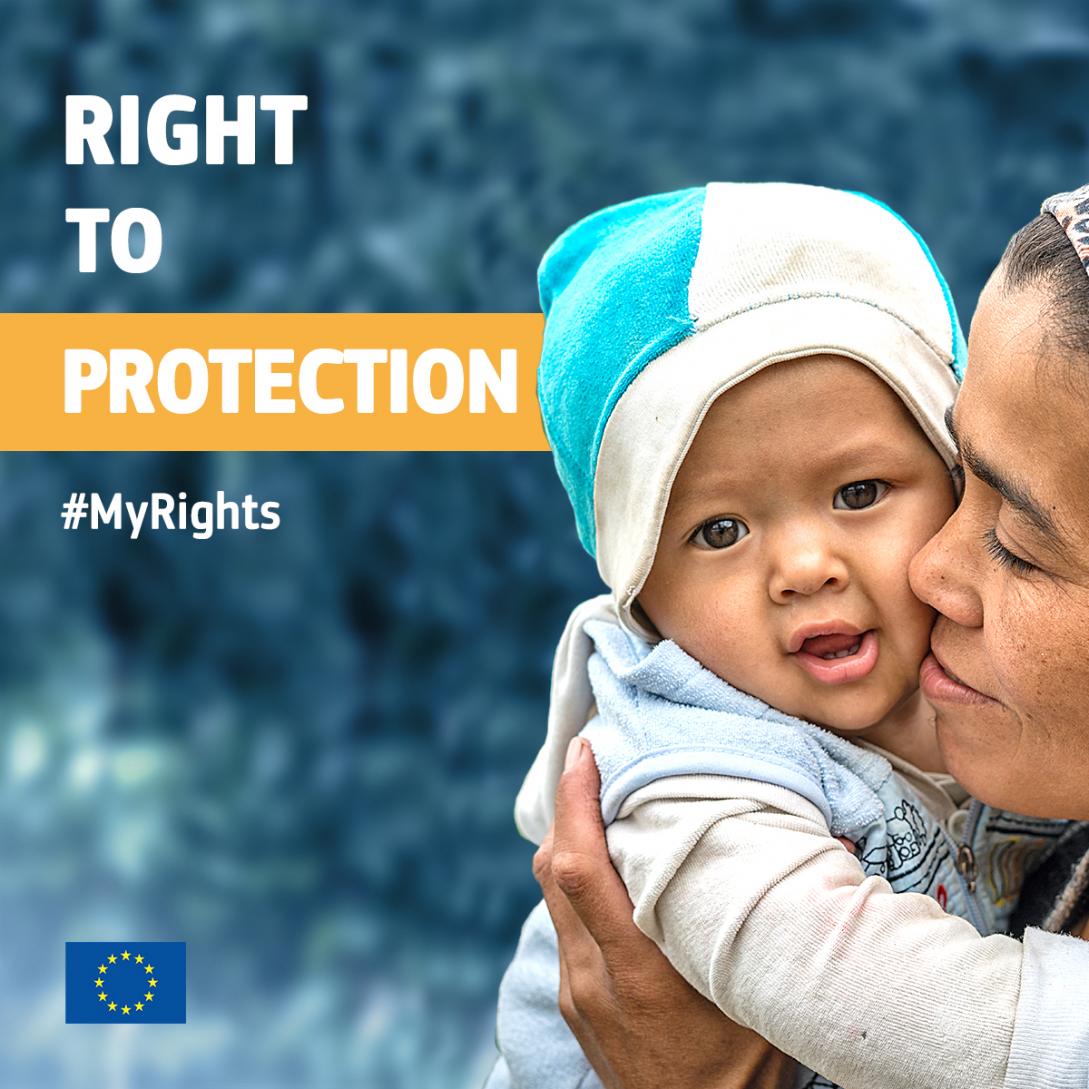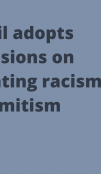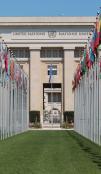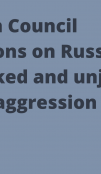Mobilising to Protect Children during COVID-19

Responding to UN Secretary-General António Guterres’ policy brief on the Impact of COVID-19 on Children, the European Union partnering with GRULAC (Group of Latin American and Caribbean states) and the Group of Friends for Children and SDGs, spearheaded a campaign urging all UN Member States & Observers to support the SG’s call to protect children amidst the coronavirus crisis.
Within a few days, 171 UN Member States and Observers signed the statement, “Protect our Children,” strongly supporting the Secretary-General’s appeal to safeguard children’s rights amidst the pandemic and prioritise education, health, food and safety.
“Protect our Children”
Response to the UN Secretary-General’s Call on Countries to Prioritize Children’s Education, Food, Health and Safety amid the COVID-19 Pandemic
Initiative launched by the EU, GRULAC and the Group of Friends of Children and the SDGs*
We strongly support the appeal by the United Nations Secretary-General António Guterres for countries to prioritize children’s education, food, health and safety amid the COVID-19 pandemic. In this regard, we welcome the release of the Policy Brief of the United Nations Secretary-General as well as the complementary Agenda for Action issued by UNICEF, which is aimed at protecting the most vulnerable children.
We express our deep concern regarding the adverse effects that the COVID-19 pandemic is presently having and will continue to have on children’s well-being, development and protection, including their access to education, food, safety and health, particularly those in vulnerable situations.
We are aware that the measures introduced to prevent the spread of COVID-19 can expose children to numerous protection risks.
We are concerned about the damaging effects the pandemic is expected to have on children in the poorest countries, on the poorest households within countries, and on girls within poorest households, as well as the devastating risks caused by the pandemic for children in humanitarian and armed conflict-affected contexts.
We are mindful that the effects of the pandemic and the preventive measures taken may pose a challenge to the implementation of the Sustainable Development Goals and ensuring the full enjoyment of the rights of the child. In that sense, we reiterate our firm commitment to leave no-one behind; to leave no child behind.
We must therefore work together to protect all children and act now to prevent and mitigate each of the risks they face, to ensure access to inclusive and quality education, nutrition and health care, as well as strengthen social protection systems. We must prevent and combat all forms of violence, including domestic violence, abuse and sexual exploitation of children online and offline, cyberbullying, and bridge the digital divide. We acknowledge the specific effects the crisis has on girls’ access to education and on gender-based violence. We should be doing everything we can to cushion the impact on children’s well-being, especially for those whose vulnerability has increased as a result of the current circumstances.
We commit to fully respect, promote and protect the rights of all children, reduce the negative impacts during and after the pandemic, as well as ensure respect for the best interests of the child while striving to take into account, where possible, children’s views.
We recognize that children and young people are positive change agents and commit to partner with them now and in the future, to ease the lasting impact COVID-19 will have on human health, society and the economy and secure a healthy, safe and sustainable future and planet for all in line with the 2030 Agenda and the Sustainable Development Goals.
We are committed to working together in solidarity, across nations and generations, to address global challenges. We welcome the work of the UN system working across all settings and acting as one UN in upholding the rights of the child in the short as well as long terms. We further commit to continue working with all partners at all levels to ensure that children can reach their full potential and to build a better future.
*63 Members of the Group of Friends of Children and the SDGs joined the initiative.
Signatories (as of 30 April 2020)
- Afghanistan
- Albania
- Algeria
- Andorra
- Angola
- Antigua and Barbuda
- Argentina
- Armenia
- Australia
- Austria
- Azerbaijan
- Bahamas
- Bahrain
- Bangladesh
- Barbados
- Belarus
- Belgium
- Belize
- Benin
- Bhutan
- Bolivia
- Bosnia and Herzegovina
- Botswana
- Brazil
- Brunei
- Bulgaria
- Burkina Faso
- Burundi
- Cabo Verde
- Cambodia
- Canada
- Chile
- China
- Colombia
- Comoros
- Congo (Republic of)
- Costa Rica
- Côte d’Ivoire
- Croatia
- Cuba
- Cyprus
- Czechia
- Denmark
- Djibouti
- Dominica
- Dominican Republic
- Ecuador
- Egypt
- El Salvador
- Eritrea
- Estonia
- Eswatini
- Ethiopia
- Equatorial Guinea
- Fiji
- Finland
- France
- The Gambia
- Georgia
- Germany
- Ghana
- Greece
- Grenada
- Guatemala
- Guinea
- Guyana
- Haiti
- Honduras
- Hungary
- Iceland
- India
- Indonesia
- Ireland
- Israel
- Italy
- Jamaica
- Japan
- Jordan
- Kazakhstan
- Kenya
- Korea (Republic of)
- Kuwait
- Kyrgyzstan
- Laos
- Latvia
- Lebanon
- Lesotho
- Liberia
- Liechtenstein
- Lithuania
- Luxembourg
- Madagascar
- Malawi
- Malaysia
- Maldives
- Mali
- Malta
- Marshall Islands
- Mauritius
- Mexico
- Micronesia (Federated States of)
- Moldova
- Monaco
- Mongolia
- Montenegro
- Morocco
- Mozambique
- Myanmar
- Namibia
- Nauru
- Nepal
- The Netherlands
- New Zealand
- Nicaragua
- Niger
- Nigeria
- North Macedonia
- Norway
- Oman
- Pakistan
- Palau
- Panama
- Papua New Guinea
- Paraguay
- Peru
- Philippines
- Poland
- Portugal
- Qatar
- Romania
- Rwanda
- Saint Kitts and Nevis
- Saint Lucia
- Saint Vincent and the Grenadines
- Samoa
- San Marino
- Saudi Arabia
- Senegal
- Serbia
- Seychelles
- Sierra Leone
- Singapore
- Slovakia
- Slovenia
- South Africa
- South Sudan
- Spain
- Sri Lanka
- Sudan
- Suriname
- Sweden
- Switzerland
- Tanzania
- Thailand
- Tunisia
- Turkey
- Turkmenistan
- Tuvalu
- Trinidad and Tobago
- Uganda
- Ukraine
- United Arab Emirates
- United Kingdom
- Uruguay
- Uzbekistan
- Venezuela (Bolivarian Republic of)
- Viet Nam
- Yemen
- Zambia
- State of Palestine
- European Union





